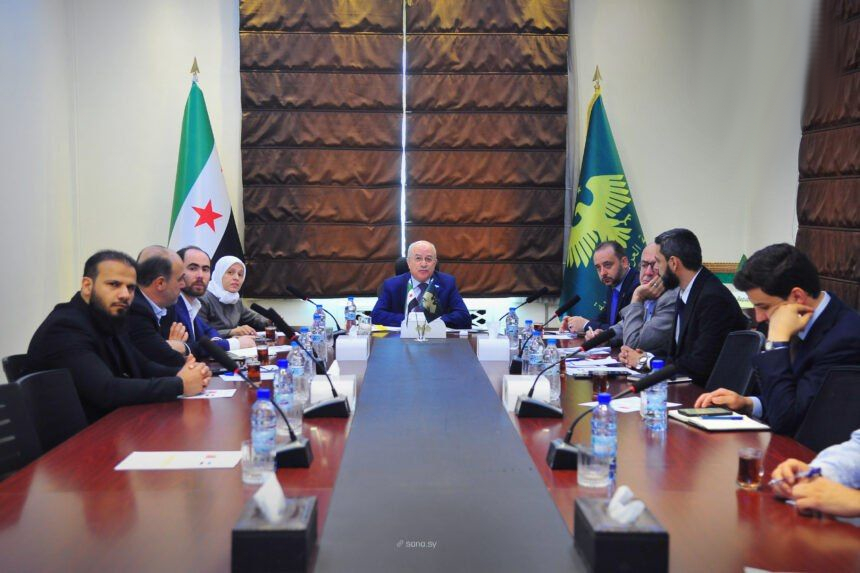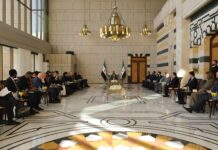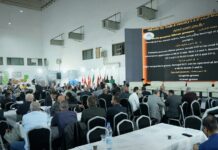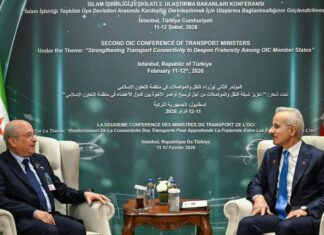 The Syrian Ministry of Transport held a consultative meeting via video conference with delegations from the China Civil Engineering Construction Corporation (CCECC) and the China Railway Construction Corporation (CRCC) to discuss prospects for cooperation in land and railway transport projects and to explore new investment opportunities in Syria’s transport infrastructure.
The Syrian Ministry of Transport held a consultative meeting via video conference with delegations from the China Civil Engineering Construction Corporation (CCECC) and the China Railway Construction Corporation (CRCC) to discuss prospects for cooperation in land and railway transport projects and to explore new investment opportunities in Syria’s transport infrastructure.
Minister of Transport Yarub Badr emphasized the importance of opening new horizons for international collaboration, particularly with friendly countries such as China. He noted that the projects currently under study and implementation represent a cornerstone of Syria’s reconstruction process and infrastructure development. These initiatives, he added, will strengthen Syria’s geopolitical role as a strategic corridor for trade and transport connecting East and West, as well as North and South.
China Showcases Global Expertise in Transport Projects
The Chinese delegation presented technical proposals highlighting major transport projects executed by the two corporations worldwide, including the Jakarta-Bandung high-speed railway in Indonesia, the East-West Highway in Algeria, and several metro systems in major international capitals.
Ali Esber, Director of Land Transport at the Syrian Ministry of Transport, outlined key national projects currently being studied or implemented. He reaffirmed Syria’s strategic geographical position as a regional and international link and underscored the transport sector’s vital role in facilitating trade and the movement of goods and people.
Proposed Strategic Projects and Digital Initiatives
The ministry reviewed several major initiatives, including the North-South Highway, which will extend from the Turkish border to the Jordanian border through Idlib, Hama, Homs, Damascus, and Daraa, with plans to extend it to Aleppo.
Also discussed was the regional railway connection designed to link Syria’s rail network with neighboring countries within a North-South corridor connecting Europe, the Gulf, and Aqaba. Plans include the transport of phosphate by rail from the Mahin mines to Tartus Port, as well as metro and regional railway projects in Damascus.
The ministry is also developing digital transport initiatives, including an electronic cargo platform, vehicle registration system, ticket booking and payment platforms, and integrated electronic scales at ports and border crossings. The two sides examined the potential for high-speed rail systems reaching speeds of 250 km/h, noting that implementation will depend on detailed economic feasibility studies and financing mechanisms.
Laying the Groundwork for Long-Term Cooperation
The meeting was attended by Deputy Minister for Land Transport Muhammad Rahal, advisors Sinan al-Khair (sustainable transport) and Riya Arafat (digital transformation), along with Ali Khawaldeh, Director of Planning and Statistics, and Iyad al-Asaad, Director of International Cooperation.
Executives from both Chinese corporations also participated. The meeting reflects the mutual interest of Damascus and Beijing in advancing strategic infrastructure projects and fostering international investment during Syria’s reconstruction phase.








